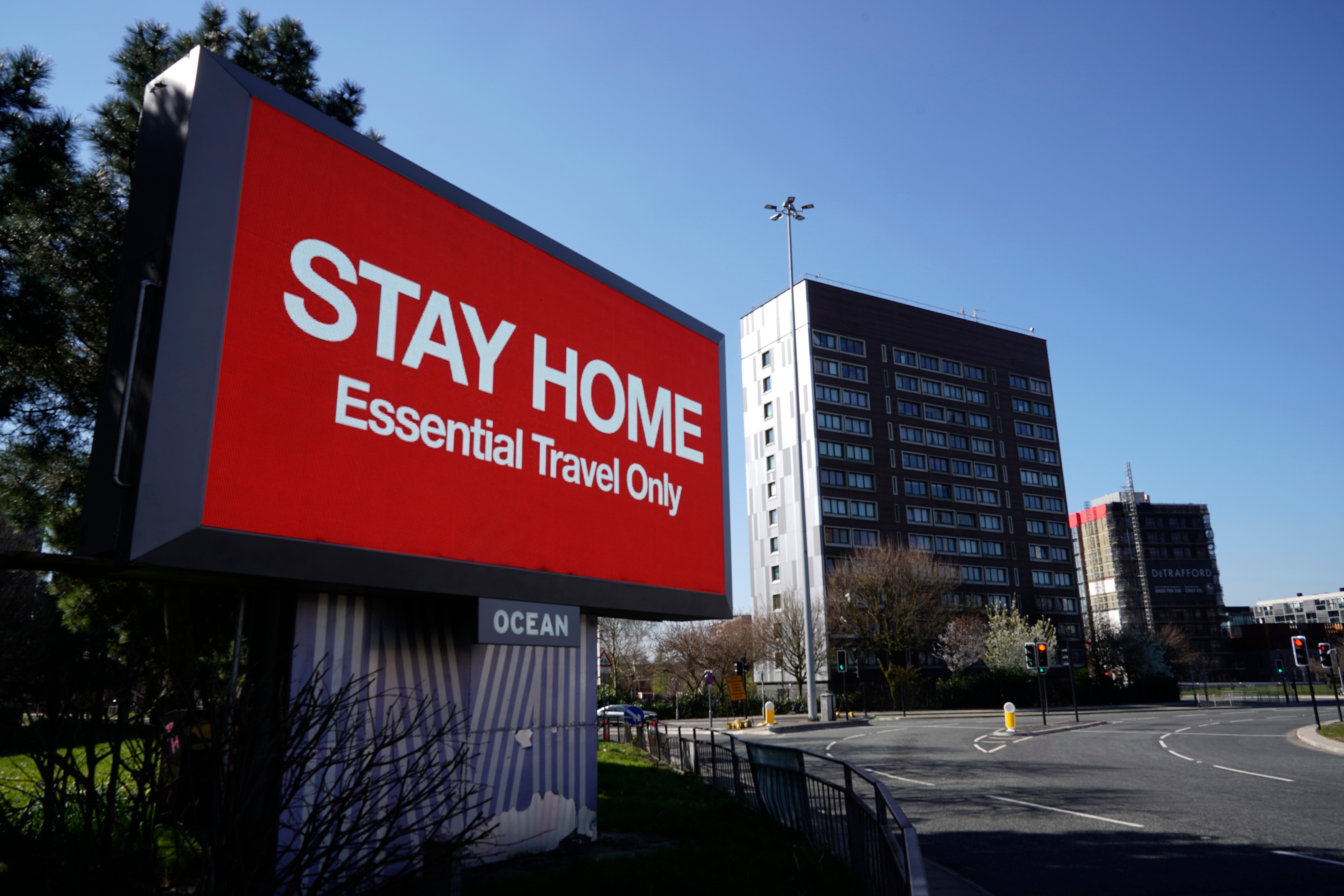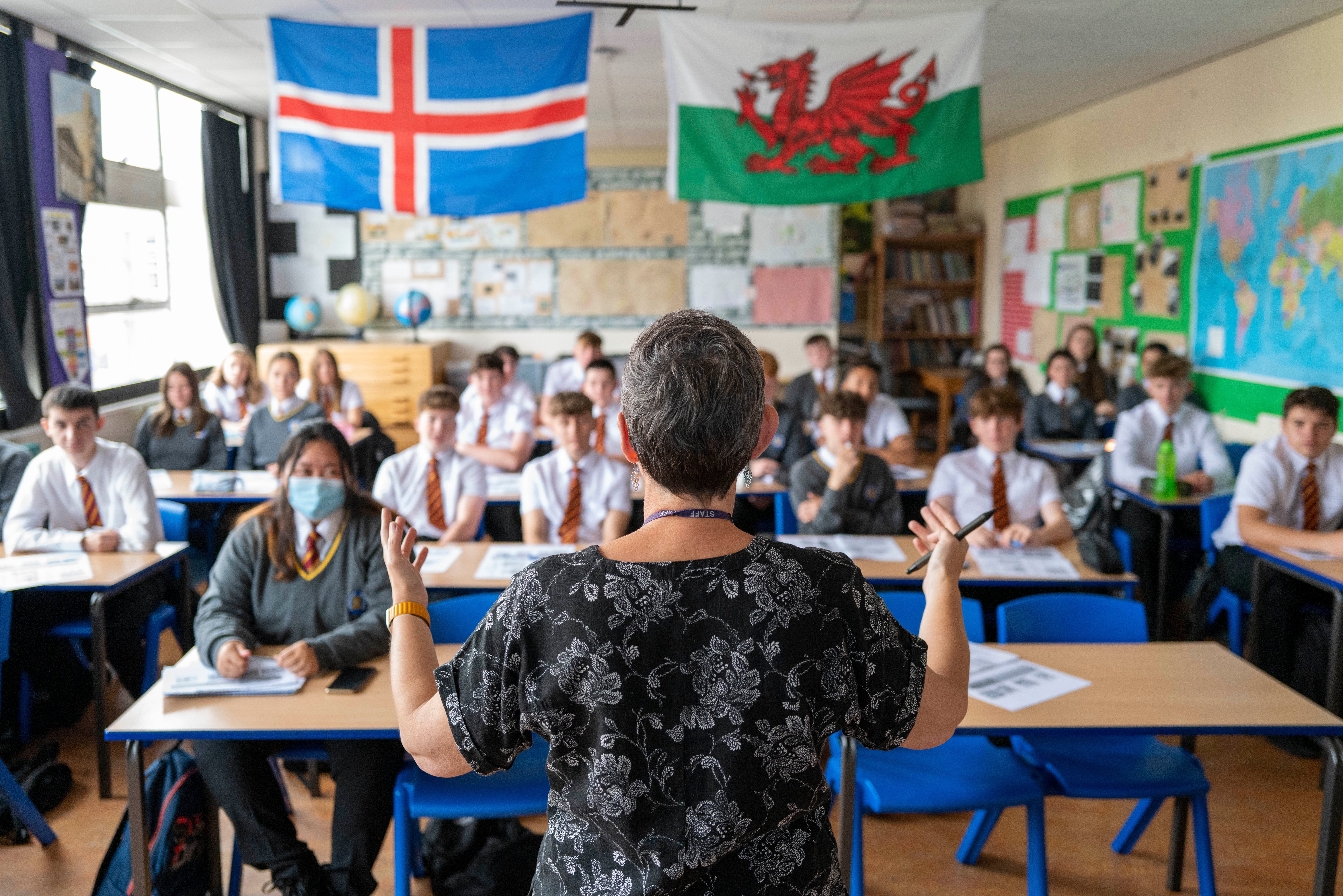Will another winter lockdown be needed?
Ministers insist there are no plans to clamp down on social mixing this Christmas, but are refusing to rule out the possibility. Samuel Lovett considers the likelihood of a return to restrictions


Cancelling Christmas is “very much not the plan”, Boris Johnson has said, amid concerns of a spike in coronavirus cases during the forthcoming festive season.
The prime minister said the government does not “expect to have to do anything like last Christmas” when spiralling infection rates forced him to implement restrictions on social mixing.
The emergence of the Alpha variant in the run-up to Christmas 2020, alongside previous failings in controlling the spread of Covid-19, intensified the size and scope of the UK’s winter wave, leading to tens of thousands of more deaths across the four nations.
But with more than 80 per cent of the adult population fully vaccinated against Covid-19, and booster jabs already being rolled out to millions of Britons, the government is hopeful that it will not need to reintroduce new restrictions this winter.
What are the government’s plans for autumn and winter?
With growing fears of a “bumpy” winter, the government has unveiled a toolkit of measures and restrictions – tailored to either Plan A or Plan B – to combat an expected resurgence in cases of Covid-19, flu and other respiratory infections in the months ahead.
Under Plan A, there are five key central pillars: enhanced vaccination, in terms of booster jabs for over-50s and offering the vaccine to 12- to 15-year-olds; testing and isolating, with quarantine laws set to remain for positive cases; the continuation of border restrictions and the red list; the injection of £5.4bn into the NHS to help with its huge patient backlog; and an emphasis, for both the public and businesses, on ventilation, mask-wearing in crowded indoor settings and hand-washing.
These measures will aim to keep cases of Covid-19 under control and prevent pressure from building on the NHS. Should they fail, the government will turn to Plan B. This will see mask-wearing legally return in “some settings” (likely to be in shops and on transport), vaccine passports introduced for all nightclubs, and guidance on working from home restored for some employees.
“It’s a graduated series of steps and we certainly don’t want or expect to have to do anything like last Christmas,” Mr Johnson said of Plan B.
Asked if he would cancel Christmas again, the PM replied: “That is very much not the plan.” There are no plans for another winter lockdown but, having learnt from its previous mistakes in making promises it couldn’t keep, the government has refused to rule out the possibility of one.
What have the scientists said?
Scientific advisers to the government have warned that, without new measures to control down Covid-19 infections, hospital admissions could rise within weeks to between 2,000 and 7,000 a day – potentially outstripping the 4,500 daily admissions that placed intense pressure on NHS capacity during the period of harsh lockdown restrictions in January.
The modelling sub-group of the Scientific Advisory Group on Emergencies (Sage) believes there is a “potential for another large wave of hospitalisations” driven by the winding down of work-from-home practices, which have played “a very important role in preventing sustained epidemic growth in recent months”.
The current levels of high prevalence, combined with seasonal pressures and behaviour changes as society reopens, could mean “a very difficult winter ahead” for the NHS, the group said.

A “basket of measures” such as mandatory face coverings, Covid passes and encouraging homeworking would be sufficient to keep the epidemic flat if enacted while hospitalisations remain at a “manageable” level, said the group.
But it warned that if their introduction was delayed until admission numbers were rising fast, “much more stringent – and therefore more disruptive – measures would be needed to bring prevalence down quickly”.
However, Professor Graham Medley, from the London School of Hygiene and Tropical Medicine, said “a lot of unlikely things would have to happen” for daily hospitalisations to reach the 7,000 mark.
Dr Stephen Griffin, a virologist at Leeds University, said it was necessary for “sensible mitigations” to be reintroduced now to avoid the need for a lockdown, which he described as an “emergency measure when control is lost”.
“It is frustrating to see the pointless fight to have things return to complete freedom during a pandemic, when the mid- to long-term outcome ends up being harsher restrictions over longer durations,” he said, adding that more patience should have been exercised in waiting to lift measures in the summer “until vaccine coverage was higher”.
What does the current data show?
Nationally, cases are falling at the moment. The number of hospital admissions rose above the 1,000 mark for four consecutive days earlier in September but have since dropped below again. Indeed, the NHS in England has recently seen its biggest weekly fall in Covid bed occupancy for more than five months.
Covid-19 was the third leading cause of death in England last month, the highest ranking since March, new figures show. A total of 2,162 deaths were due to coronavirus in August, the equivalent of 5.3 per cent of all deaths registered in England, according to the Office for National Statistics (ONS).
Separate data from Public Health England meanwhile shows a fall in protection against hospitalisation among people vaccinated with Pfizer and AstraZeneca. The drop-off is dependent on age, vaccine and underlying health conditions, as seen above and below. For over-65s deemed clinically extremely vulnerable (CEV), protection drops to below 60 per cent 20 weeks after two AstraZeneca jabs, compared with 71 per cent for Pfizer.
The UK’s booster programme, which will be extended to all over-50s, will aim to keep these groups out of hospital over winter, when cases are set to rise as people spend more time indoors due to the poor weather.




Join our commenting forum
Join thought-provoking conversations, follow other Independent readers and see their replies
0Comments